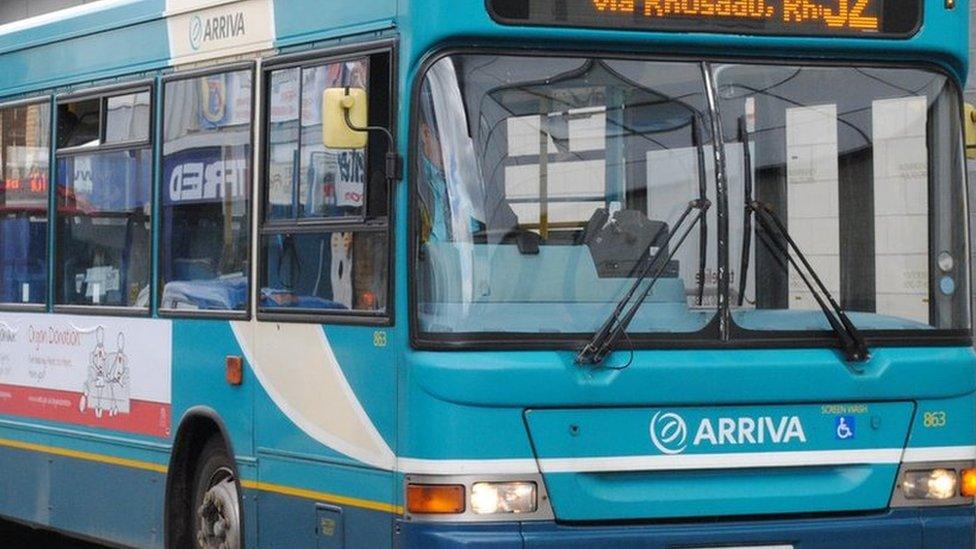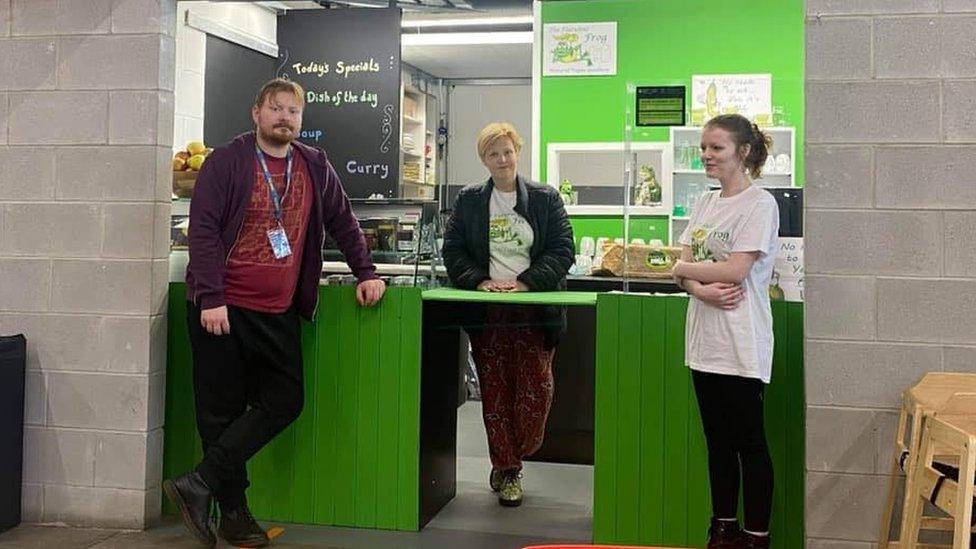Equal pay talks to avoid north Wales bus strike fail
- Published

Unite said it wanted Arriva to "treat us the same as you treat your colleagues in England"
Talks to avoid more bus strikes across north Wales, which could last for five weeks, have failed.
Hundreds of drivers voted for the action, which began on Sunday, calling for "parity" in earnings with their colleagues in north-west England, who are paid £1.80 per hour more.
Arriva said it was "extremely disappointed" that strike action went ahead.
Trade union Unite said the issue was about workers being treated "fairly".
Richard Parslow, Unite's branch chairman in Bangor, where Arriva has one of its depots, said: "Here in Wales we appear to be the poor relations of Arriva.
"There are bus drivers who pass each other on the road in Wrexham and Chester who will be on £2 an hour more than their compadres in Wales."
He added that he understood the strike was affecting people who use the buses.
"It's not something we've taken lightly. We have decided perhaps enough is enough.
"We have worked all through this pandemic. We have been happy, we have taken key workers to hospitals... and it is an insult Arriva should turn around after this dreadful pandemic and offer us this sort of money in Wales."
Jo Goodchild, regional officer for Unite, said although both sides were "unable to reach agreement", the trade union "remains hopeful a resolution can still be recached".

Helen Grout (centre) said she had noticed a drop in footfall since the bus strike began
Arriva has six bus depots in north Wales, which are all affected by the strike, in Amlwch, Bangor, Hawarden, Llandudno, Rhyl and Wrexham.
David Williams, 72, from Llandudno, who uses buses several times a week, said the effect has been "disastrous" on the community.
"I am a major bus user so I am stuck in Llandudno now, like a load of other people. We don't all have cars or can afford to have taxis," he said.
"I can't understand why they are not paid as much as their counterparts in the north-west of England... but it's the passengers who are being hurt, not Arriva."

David Williams said the bus strike was hurting passengers rather than Arriva
Helen Grout opened vegan restaurant The Flatulent Frog inside Wrexham arts centre and market six weeks ago.
She said footfall was "very reduced" and the cafe had seen "poor sales" due to the strike.
"I am worried about the impact on everyone's takings and that affects our ability to pay our staff," she said.
She added she was "sympathetic" towards the drivers and supported their fight for equal pay.
Speaking before strike action began, Arriva said it had offered to increase driver pay to £11.59 per hour, back paid to January 2021, and a further increase to £12 per hour in 2022.
The bus operator added: "We have worked tirelessly to avoid this strike, which is why we have consistently come up with new offers, while the trade unions have refused to negotiate."
Lift sharing groups have been formed on social media as people try to help each other get to work, school, college and appointments.
The strike could run until 19 December.
- Published13 November 2021

- Published10 November 2021

- Published4 October 2021
